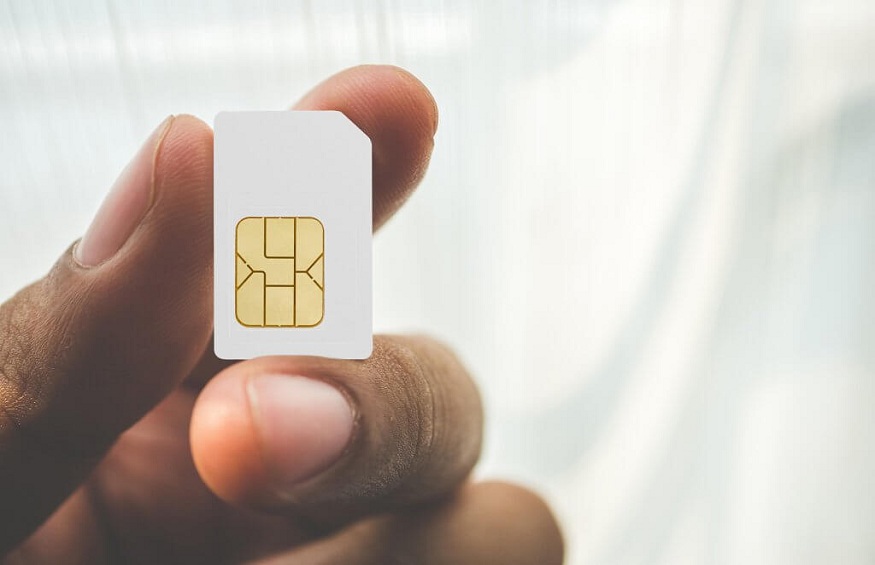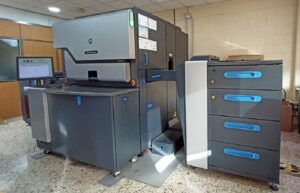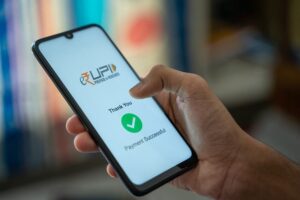IoT Sim Cards: A Game-Changer for Businesses and Consumers Alike

Welcome to a world where everyday objects are connected, communicating, and making our lives easier. The Internet of Things (IoT) has revolutionised the way we interact with technology, and now there’s a game-changer on the horizon that is set to take this connectivity to new heights: IoT SIM cards. These tiny but powerful chips have the potential to transform businesses and consumers alike, opening up a whole new realm of possibilities for innovation and efficiency. In this blog post, we’ll dive into what IoT SIM cards are all about and explore how they’re reshaping the future as we know it. Get ready for an eye-opening journey into a not-so-distant reality where everything truly is connected!
What are IoT Sim Cards?
IoT sim cards are simply regular sim cards that have been designed specifically for use in internet of things devices. These devices can be anything from smart thermostats to security cameras, and they all require a data connection in order to function. In the past, this has meant that businesses and consumers alike have had to either sign up for a separate data plan for their IoT devices, or use a shared data plan that might not be sufficient for their needs.
With an IoT sim card, however, businesses and consumers can get a dedicated data connection for their IoT devices without having to worry about additional costs or using up their phone’s data allowance. This is because IoT sim cards come with their own data plans that are specifically designed for use with internet of things devices. This means that businesses and consumers can get the data they need for their IoT devices without having to worry about going over their allotted data or incurring additional charges.
How do they Work?
IoT sim cards are special kinds of sim cards that are designed to be used in devices that are connected to the internet of things. This means that they can be used in anything from smart TVs to connected cars.
IoT sim cards work by connecting to a network of IoT devices that share data with each other. This data is then used to provide information and services to users. For example, an IoT sim card in a car could be used to track the car’s location, speed, and fuel level.
Benefits of Using an IoT Sim Card for Businesses
An IoT sim card is a special type of sim card that enables businesses to connect their devices to the internet. This can be extremely beneficial for businesses, as it allows them to remotely monitor and manage their devices. Additionally, it can help businesses save money on their data costs, as they can use a data plan that is specifically designed for IoT devices.
There are many other benefits of using an IoT sim card for businesses. For example, it can help businesses to improve their customer service, as they can offer customers real-time updates on their orders. Additionally, it can help businesses to increase their sales, as they can offer customers discounts and coupons based on their location. It can help businesses to protect their data, as all data transmitted over an IoT sim card is encrypted.
Benefits of Using an IoT Sim Card for Consumers
An IoT sim card can have many benefits for consumers. Here are some of the top benefits:
1. Increased security: With an IoT sim card, your data is more secure since it is not stored on your device. This means that if your device is lost or stolen, your data will not be compromised.
2. Reduced costs: An IoT sim card can save you money by reducing your data usage. Since your data is not stored on your device, you will not need to use as much data each month.
3. Extended battery life: An IoT sim card can help to extend the battery life of your device since it uses less power than a traditional sim card.
4. Increased convenience: An IoT sim card can make your life more convenient by allowing you to connect to the internet without having to worry about finding a Wi-Fi hotspot.
Security Considerations
The ever-growing Internet of Things (IoT) is revolutionising the way businesses and consumers interact with the world around them. With more and more devices being connected to the internet, there is an increased need for security measures to be put in place to protect these devices from cyber attacks.
One way to improve the security of IoT devices is to use SIM cards that are specifically designed for IoT applications. These SIM cards come with built-in security features that can help to protect your devices from malicious attacks.
Here are some of the benefits of using IoT SIM cards:
1. Improved security: As mentioned above, IoT SIM cards come with enhanced security features that can help to protect your devices from cyber attacks.
2. Increased connectivity: IoT SIM cards offer improved connectivity compared to traditional SIM cards. This means that you will be able to connect your devices to the internet even in areas with poor mobile coverage.
3. Enhanced durability: IoT SIM cards are designed to be more durable than traditional SIM cards, making them ideal for use in harsh environments.
Reduced costs: By using an IoT SIM card, you will be able to reduce the costs associated with deploying and maintaining a separate network for your IoT devices.
Challenges and Limitations to Consider
There are a number of potential challenges and limitations to consider when it comes to using IoT sim cards for businesses and consumers. One challenge is that there is currently no one-size-fits-all solution for all businesses and consumers, so each company or individual will need to find the right provider and package for their specific needs. Another challenge is that IoT devices can be expensive, so businesses and consumers will need to factor in the upfront cost of purchasing and setting up the devices.
Another potential limitation is that IoT devices can be susceptible to hacking and security breaches. This means that businesses and consumers will need to be vigilant about protecting their data and keeping their devices updated with the latest security patches. It’s important to note that IoT technology is still evolving and changing rapidly, so companies and individuals will need to stay up-to-date on the latest trends and developments in order to make the most of their investment.
Examples of Companies Using IoT Sim Cards
1. Coca Cola: In 2015, Coca Cola installed Internet-connected vending machines in Russia that used IoT sim cards to track inventory and send real-time data to the company’s distribution centre. The vending machines also allowed customers to make purchases using their smartphones.
2. Ford: In 2016, Ford announced that it would be using IoT sim cards in its vehicles to provide a variety of services, including maintenance reminders and emergency assistance. Ford is also working with AT&T to develop a system that will allow cars to communicate with one another to avoid traffic accidents.
3. John Deere: John Deere is using IoT sim cards in its agricultural equipment to collect data about soil conditions, weather patterns, and crop yields. This information is then transmitted to the company’s servers, where it can be used to improve the efficiency of farming operations.
4. Philips: Philips is using IoT sim cards in its home appliances, such as coffee makers and TVs, to allow them to be controlled remotely via a mobile app. The company is also working on plans to use the data collected by these devices to offer personalised recommendations and advertisements to users.
5. Samsung: Samsung has developed a number of consumer products that use IoT sim cards, including smart TVs, refrigerators, and washing machines. The company is also working on integrating IoT technology into its products for businesses, such as point-of-sale systems and security cameras.
Conclusion
IoT Sim cards are revolutionising the way businesses and consumers interact with the world around them. With increased connectivity, lower costs, and better security, they provide a wealth of benefits that can improve both business operations and customer experiences. As more companies begin to embrace this technology, we’re likely to see a shift in the way we think about our relationship with technology—and how it can help make our lives easier.







